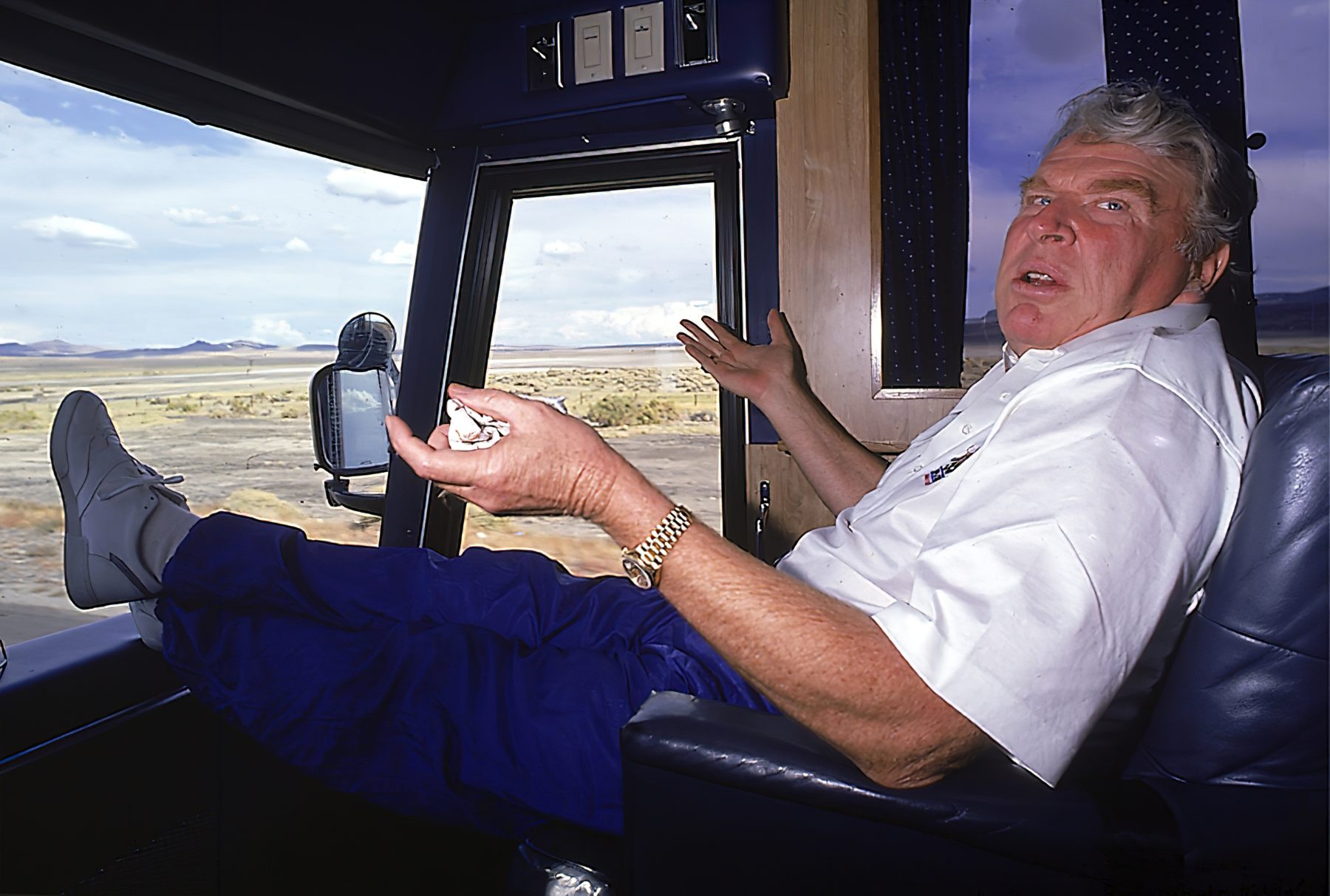Vacation Rental Manager VTrips Ramps Up Dealmaking and Mulls Going Public

Skift Take
Vacation rental companies are ramping up their merger activity in hopes that a scale game will help them make the most of a domestic boom in bookings.
VTrips, a vacation rental property management company based in Ponte Vedra Beach, Florida, said it acquired Resort Collection and its 800 properties. The deal, announced June 1, boosted VTrips' inventory by roughly a third, to 3,000 properties under exclusive contracts. The company paid cash, but it didn't disclose the terms of the deal.
"We anticipate we will go public someday and file an S-1," said founder and CEO Steve Milo. "It will be a bad day for companies who do not have anywhere near the profitability despite a larger unit count."
Milo wholly owns VTrips. He argued that his company takes a smarter approach to consolidate the vacation rental industry than other better-known players thanks to a different strategy on branding, operations, and technology. His private company hasn't released financials, but Milo said the company is profitable.
"VTrips has four years of compounded EBIDTA [earnings before interest, taxes, depreciation, and amortization — a measure of profit] growth of 57 percent," Milo said. "VTrips EBIDTA as a percentage of revenue will be over 30 percent in 2021. We're on track for $50 million in EBIDTA in 2023."
In the past two months, VTrips has also acquired Distinctive Beach Rentals in Fort Myers Beach,Florida, and Resort Property Management in Pigeon Forge, Tennessee.
"Our profitability has allowed us to amass capital in a very efficient manner, both from commercial banking as well as from operating profit," Milo said. "That allows us to expand."
Milo didn't disclose how much debt VTrips has taken on.
"Steve Milo has built one of the fastest-growing and certainly one of the most, if not the most, profitable vacation rental businesses in the U.S.," said Jason Sprenkle of Key Data, a data and analytics consultancy. "This acquisition undoubtedly cements VTrips as one of the clear national market leaders, and it seems they are just getting started."
Consolidation in the Vacation Rental Sector
VTrips' acquisition of Resort Collection comes at a time when vacation home-rental management companies — and investors backing those challengers — are seeking to cash in on a pandemic-era boom in domestic travel.
Accor's Onefinestay brand said this week it had acquired 500 chalets and villas in resort destinations in the U.S and Europe. Last month, Awaze, a vacation rental business for managed properties, acquired a few smaller rivals and their hundreds of units.
In March, Vacasa acquired TurnKey as part of a roll-up of U.S. property management companies. Late last year, Oyo Vacation Homes acquired around 17,000 units.
VTrips has a Different Approach
Rollups have an uneven track record across industries. As a general rule, the more dependent you become on growth through acquisition, the more vulnerable you become to making a bad decision or having trouble integrating companies. Consider Expedia Group, Oyo, or Waste Management.
The case for rollups in the vacation rental space is two-fold. First, North America has an estimated 10,000 property management companies. The owners of many of these mom-and-pop companies are Baby Boomers who have one eye on retirement. In theory, this pool of businesses gives companies like VTrips and Vacasa a wide choice of companies to choose from, buying only the best — to paraphrase a case made by analyst Byrne Hobart of The Diff newsletter.
The second case for rollups is that technology and operational excellence can make a big difference in profitability. The more scale you have, the more you can extract benefits both operationally and technologically. And many property management companies have fallen behind on the technology front, so a VTrips or Vacasa can plug those gaps.
Vacasa, Awaze, Oyo Vacation Homes, Sykes Cottages, and some other investor-backed property management companies emphasize the importance of having either a single brand or a limited array of brands. They say brand simplification helps them keep digital marketing costs low.
Keeping Small Brands
VTrips chooses to maintain most of the small brands it buys.
"Vacation rentals are a localized experience and local brands are very important to retaining the guest and loyalty of the best employees," Milo said.
"There are regional companies throughout North America that have developed deep roots in the community," Milo said. "Some brands are 30 or 40 years old, and guests, employees, and homeowners know and trust them. So when we buy one, what we're buying is the goodwill is the brand as well as the exclusive contracts."
Milo acknowledged the owners usually leave after selling their companies. He said the typical explanation was that the owners are looking to enter a new phase in their lives. But VTrips works hard, through promotion, compensation, and other incentives to encourage star employees to stay.
"Vacation rental property management is in the hospitality business first and in the technology business second," said Milo. "The companies who are not strong in hospitality have suffered in operations, which has led them to be very unprofitable."
Matt Landau of VRMB (the Vacation Rental Marketing Blog) recently spent a month filming Milo and the VTrips teams at five destinations for a new "behind the scenes" documentary about professional vacation rental management.
Landau said he learned a few things about the company in the process. He uses the phrase "centralized decentralization" to describe the VTrips acquisition strategy.
"When VTrips acquires a new company, they centralize some activities like accounting and HR, but they preserve the existing brand, weird quirks that seem to work, and team with ties in the local community," Landau said. "Vacation rentals do not have a cookie-cutter solution. The problems and the solutions are different in every destination. Which is, by the way, something most of the big guys fail to understand."
"Steve [Milo] doesn't do luxury," Landau said. "His magic zone is mid-range properties. A sweet spot post-pandemic with major tailwinds. You can see why our producer Stuart Hooper refers to him as the 'Conrad Hilton of vacation rentals.'"
Some past acquisitions have gone poorly, Milo admitted.
"I'm never afraid to admit we made a mistake in certain areas where we expanded," Milo said. "We've closed offices that weren't profitable in markets that just didn't make sense for VTrips after experimentation."
VTrips said it focuses on profitability by getting the small details right on operations, guest service, and owner service.
"We're building dedicated laundry facilities in central locations and using dedicated inventory sheets and towels," Milo said.
Technology is important to VTrips, but it's not a tech company.
"We're technology-enabled, and what that means is we use best-of-breed, hosted, or cloud-based, systems which allow us to make a more efficient company for both guests and owners and employees," Milo said. "For example, we are rolling out smart locks on every property that we acquire."
One example is that VTrips uses TravelNet Solutions' software for property management, customer relationship management, and contact center management.
"Rather than try to reinvent the wheel, VTrips leverages a unique combination of non-owned software and technology to produce excellent results for his property owners and stakeholders," said David Angotti, founder of SmokyMountains.com and someone who sold a property management brand to VTrips.
VTrips makes contact with guests and owners more efficient with online portals, and it uses sophisticated pricing plans to make the most money according to supply and demand trends.
Milo says he stays out of developing software in-house because it can be a hamster wheel and a distraction from focusing on hospitality and profitability first.
Vacasa, which instead builds a lot of its tech in-house, received a valuation from venture capital investors of more than $1 billion in recent rounds.
Milo entered the business by renting out a single property. When he amassed 15 units, he started VTrips in 2006. His company now runs 3,000 properties. So is VTrips a unicorn, too?
Milo claims it is — but we'll know more if the company ever indeed goes for an IPO.





